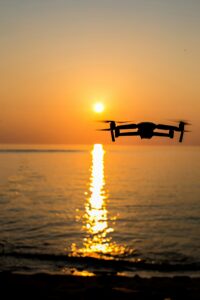Imagine a world where your morning coffee could be delivered to your doorstep by a drone, fresh and piping hot. This may sound like a scene from a sci-fi movie, but the reality is closer than you think. As companies continue to push the boundaries of technology, the use of drones for delivery services is becoming more than just a futuristic dream – it’s a tangible reality that is revolutionizing the way we think about logistics.
According to a recent report by PwC, the global drone delivery market is projected to reach $27.4 billion by 2030. Companies like Amazon, UPS, and Google’s Wing are already conducting trials and implementing drone delivery services in various parts of the world. Not only does this technology offer faster and more efficient delivery options, but it also reduces carbon emissions and alleviates traffic congestion on the roads.
Despite the potential benefits of drone delivery, there are still challenges to overcome, such as regulatory hurdles and public skepticism. However, stakeholders in the industry remain optimistic about the future of drone technology. As Markus Wehkamp, CEO of a leading drone delivery company, puts it, “Drones have the potential to completely transform the way we do business and interact with our environment. This is just the beginning.”
In conclusion, the rise of drone delivery services is just one example of how technology is reshaping traditional industries. As we continue to embrace innovation and push the boundaries of what is possible, the sky’s the limit for the future of business and beyond.



